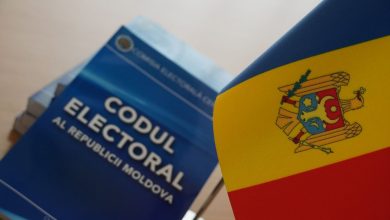Sebastian Mondial: “Take Advantage of Artificial Intelligence Because Things Happen Anyway, with or without You”

Since the preliminary registration at the Mass Media Forum, it became obvious that most of the participants demonstrated an increased interest in the workshop titled “Artificial Intelligence in Journalism: Practical Tools and Types of Self-Regulation.” Therefore, on December 5, on the second day of the event, the hall was full of media representatives who were eager to find out how things with artificial intelligence were going, which was a rather ambiguous and somewhat misinterpreted sphere not only in the Republic of Moldova. Sebastian Mondial, a German expert, journalist, lecturer, and IT specialist currently teaching AI training courses for journalists had to meet all their expectations.
Advanced artificial intelligence models promise outstanding benefits for mankind, but society should manage the accompanying risks proactively, Sebastian Mondial told the audience at the Moldova Mass Media Forum. In the context, the German expert mentioned ChatGPT and the artificial intelligence behind it, and the other tools which could be helpful to us, but also bring lots of disadvantages if used with malicious intentions. He remarked that several specializations in journalism could disappear completely due to being replaced by AI. Let us provide some of the basic ideas during the workshop.
Images. Anyone present in this room can be instructed at the AI courses in order to become an expert in photo generation. Besides, any photo can be created, re-created, and modified by AI in a manner which does not differ from reality. Moreover, artificial intelligence can generate much better photos than any professional, because it may choose from thousands of variations stored in various sources, select the best light, resonance, etc. According to the expert, in a short while, it could evolve to such a degree that no editor would be eager to pay a photographer, for instance, for going to a protest to take photos. With AI’s assistance, a computer will be able to generate any image on this topic.
Voice cloning. This technology keeps a rapid pace, hence, if any journalists (hosts or reporters) have pleasant voices and work on the radio, they should be aware of the fact that their voice could be cloned rather soon, their place in the studio could be taken by the computer which will read the texts prepared by AI, and radio listeners will have no clue that they are listening to a robot. Sebastian Mondial says such changes could occur in the media in 12 or 18 months at the most. “And after that, we will have real surprises: for instance, we could hear Albert Einstein interview British Prime Minister Margaret Thatcher. Both could speak with their own voices and discuss current issues, and the audience could believe the dialogue is real, because everything sounds quite credible,” the expert says jokingly.
Films and video materials. They can be generated by using the same methodology as images or texts, with the only difference that they can move. Hence, the German expert affirms, investments in video journalism would not be quite justified either.
The DaVinci-003 Open AI Playground model can draft almost perfect emails, press releases, essays, and scientific papers using just a few keywords in all possible languages. Sebastian Mondial says he has tried using it with his students around the world during the artificial intelligence course.
Translation. GTP3.5 (2) is almost a universal translator which can assist in coping with most text-related media/journalism tasks based on our experiments with the Davinci-003[3] model, Sebastian Mondial also affirms.
Text editing, writing, and content sharing could be completely replaced by AI. The emphasis in journalists’ activity will change; it is likely to be shifted to conducting investigations, discussions with people on the ground, analysis, thorough research, checking up and classifying information, etc.
However, according to the expert, artificial intelligence also has its negative aspect. For instance, it ignores copyright. It merely consumes information, “stealing” it online from all the websites; besides, it cannot be sued, because the law punishes humans, not technical tools. In addition, it is not always reliable for journalists, as it does not provide 100% verified information, and sometimes it can avoid providing the answer by referring the user to the other sources.
“The change is irreversible,” the Forum guest concludes. “When the Internet emerged, many people were still pondering whether it should be used or not. And some said: oh, it won’t bring us any good. It took them a decade to realize that the Internet could change their business model. Currently, AI keeps changing these business models once again. My piece of advice is to try to take advantage of AI because things happen anyway, with or without you.”


